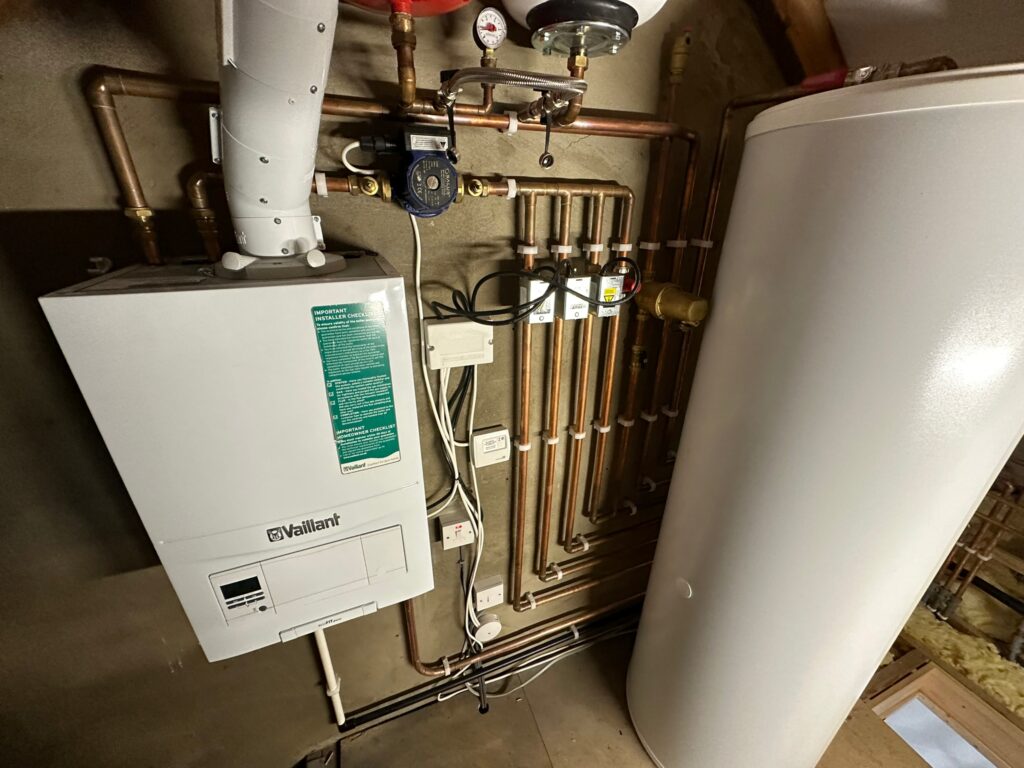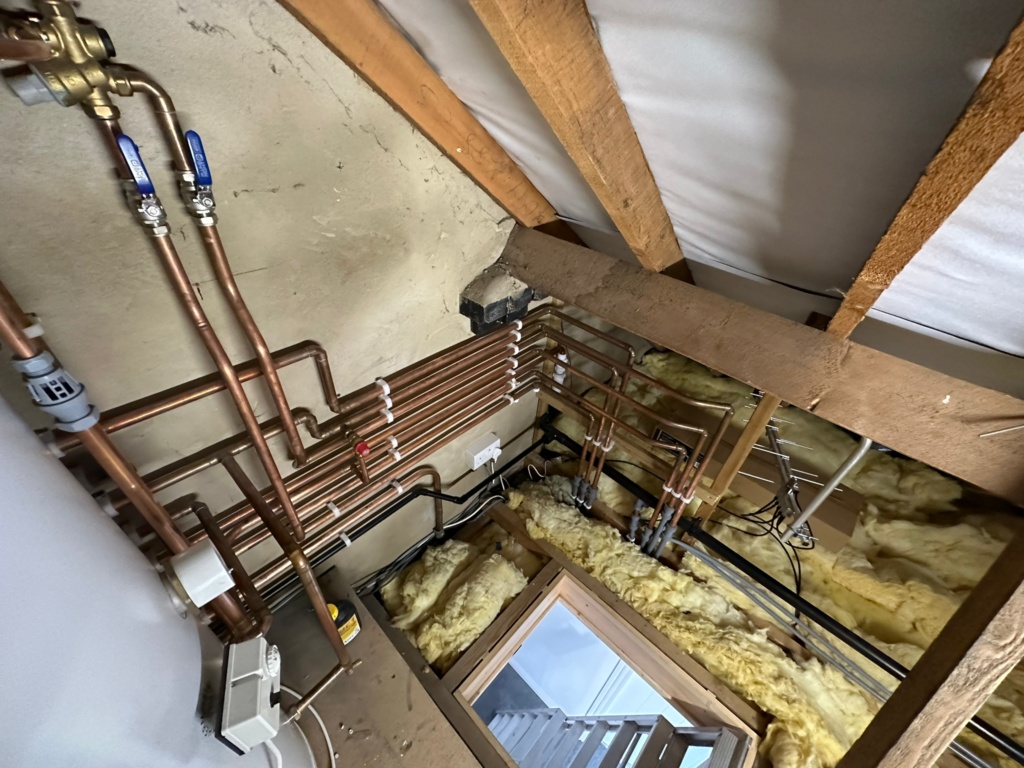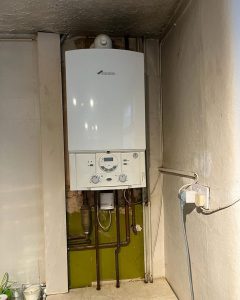
Unvented gas boilers are becoming more popular as homeowners, contractors, and builders in general are learning more about the advantages of installing them. These boilers operate by burning natural gas instead of traditional oil to produce heat. There are many advantages to this technology, but one of the biggest concerns is that unvented boilers do not have a dedicated venting system.
This means they cannot be used indoors or in small spaces. Fortunately, there are several ways you can install an unvented gas boiler that will work for your particular situation. Let’s take a look at some important considerations when you’re planning on installing an unvented gas boiler and how to go about it.
Benefits of Gas Boilers: A Quick Guide to Gas Boiler Installations
Gas boiler installations in the home can be a daunting task. There are several benefits of having a gas boiler installed in your home, but this doesn’t mean that it’s going to be an easy process. Installing a gas boiler is not something that you can just do on a whim, especially if you have never worked with plumbing before. Plus, there are many factors to consider when choosing whether or not to install a gas boiler.
If you’re thinking about installing a gas boiler in your home, but aren’t sure what all the benefits and drawbacks might be, then read on! Keep reading to learn more about the advantages of having a gas boiler installed in your home and what you can expect during the entire process.
What is a Gas Boiler?
A gas boiler is an appliance that heats water with natural gas. It’s different from a gas fireplace or gas stove because it typically doesn’t produce flames or heat the entire room. Instead, it heats water, so it’s very different from furnaces used in air conditioning systems.
But, if you’ve ever been curious about the benefits of a gas boiler, we’ll start by explaining what a gas boiler is in the first place. A gas boiler is a device that heats water with natural gas. Natural gas is a combustible fuel that’s found in the ground underneath your home. It’s odorless and colorless, so it’s not obvious to the naked eye.
But, natural gas is odorless, colorless, and extremely flammable, so it’s incredibly dangerous if it ever leaks or escapes into your home. Natural gas is commonly piped into your home to power electric water heaters and other appliances. Green Energy home provide Gas Boiler Installations.
Installing a Gas Boiler – The Benefits
Green Energy Homes Gas Boiler Installations – Cheaper than Electric – If you’re looking to save some money on your heating costs, installing a gas boiler can be a great option for you. Natural gas is typically more affordable than electric heating, especially if you live in a colder climate.
Natural gas is also easier to store and transport than electric, so if you have a place that’s extremely remote and inclement weather is expected, you’re likely better off with natural gas. – No Wintertime Electricity Bills – If you’re not too fond of the idea of paying an electric bill every month, you’ll be happy to know that installing a gas boiler can help you save money on your wintertime electric bill.
The simple fact is that natural gas doesn’t require any electricity to run it, so you won’t have to worry about being charged a monthly electric bill. – Safer Than Electric – Natural gas is safer than electric. When you have an electric furnace, it sends a current through the piping that takes the heat to your home.
But, the only way that electricity can flow through natural gas is if there’s a leak along the piping, so it’s much safer than electric.
Installation Tips for Gas Boilers
– Make Sure the Gas Company Comes First – Before you get started with the gas installation, make sure you start with the gas company. Many homeowners think that the gas company is responsible for the installation, but you actually have to hire a licensed plumber to do this. – Be Sure to Get the Right Type of Gas Boiler – You should always look at the BTU rating of the gas boiler that you want to install.
This will help you determine what type of gas boiler you need. If you have a smaller home that you’re trying to heat with just a few furnaces, you can get away with a less powerful gas boiler, while someone with a large home might need a more powerful one. – Get a Written Gas Contract – One thing to keep in mind when installing a gas boiler is that you usually need to sign a contract with the gas company.
So, it’s important to make sure that you read the terms and conditions of the contract, especially if you’re planning on switching companies at some point down the line. – Install a Check Valve on the Gas Pipes – Before you get started with the gas piping, it’s important to make sure that the check valve on the gas piping is working properly.
If it isn’t, you need to fix it before you continue with the installation. – Season Furnaces Properly – One thing that you should never forget is that you need to properly season your furnaces before you turn them on for the first time in the winter. The idea here is that you want your furnaces to be at room temperature before you turn them on so that they don’t burn out too quickly. – Wear Protective Gear – Before you begin installing the gas piping, it’s important to make sure that you wear protective gear. This includes a pair of thick gloves, safety goggles, and a respirator.
Drawbacks of Gas Boilers
– Installation Process – Installing a gas boiler is usually a fairly involved process, and it can take quite a while to complete depending on the size of your home and the amount of piping that your home has. So, if you’re looking to get it done quickly, you might be disappointed here. – Completing the Installation – One thing that you have to be careful about when installing a gas boiler is that you need to be sure that you completely seal up the piping from the gas company.
This is because you don’t want any gas to escape into your home when you’re not there. So, you need to make sure that this isn’t a problem in your home. – A Gas Company Evacuation Shutoff – It’s important to know that a gas company evacuation shutoff is usually installed in your home when you get the gas company to tap into your gas lines. And, this shutoff is there to help the gas company if there is a leak in your home. So, make sure that you know how to use it.

Which Type of Gas Boiler Should You Have Installed?
If you’re deciding between a gas furnace and a gas boiler, a furnace is usually going to be the cheaper option. But, a gas boiler has many benefits, and installing a gas boiler is a better option. So, if you can afford it, you should definitely go with a gas boiler. When deciding between a gas furnace and a gas boiler, make sure that you think about how much heat you need to keep your home warm in the winter and how many people will be in the home when you need to use the heat.
Also, consider the monthly electric bill and how much the installation is going to cost. It’s important to note that a gas boiler is usually more expensive than a furnace and the installation process is often more involved as well. And, while a gas boiler provides you with some safety, a gas furnace is not as safe. So, if you’re looking at these three factors, you should definitely go with a gas boiler, contact Green Energy Homes for more information.




